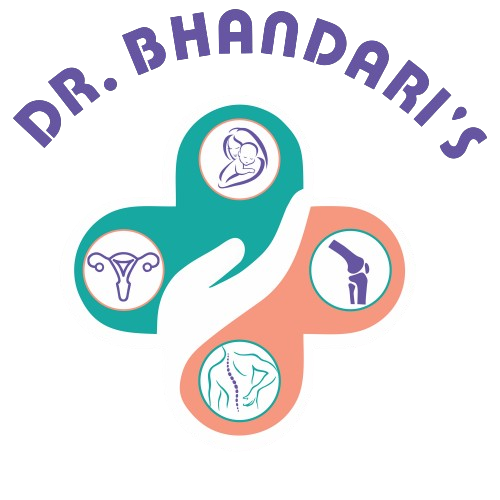Introduction
Joint surgery can be life-changing, helping people regain mobility and live pain-free. Whether you’ve had knee, hip, or shoulder surgery, a smooth and speedy recovery is essential for getting back to normal life. However, healing after surgery requires proper care, patience, and discipline. Following the right recovery plan can help prevent complications, reduce pain, and improve long-term results.
If you or a loved one is preparing for joint surgery, here are some essential tips to ensure a successful recovery.
1. Follow Your Doctor’s Instructions
The most important step in recovery is listening to your orthopedic surgeon and physical therapist. After surgery, you will receive detailed guidelines about medications, physical activity, diet, and wound care. Following these instructions carefully will help speed up healing and prevent any setbacks.
If you experience unexpected pain, swelling, or discomfort, do not ignore it—consult your doctor immediately.
2. Manage Pain and Swelling
Pain is a normal part of recovery, but it should be managed properly. Your doctor may prescribe painkillers or recommend over-the-counter medications.
Besides medication, you can also try natural pain relief methods such as:
- Cold therapy – Apply ice packs to the operated area for 15-20 minutes at a time to reduce swelling.
- Elevation – Keeping your leg or arm raised can help reduce fluid buildup and swelling.
- Gentle massages – Light massage (if approved by your doctor) can improve blood circulation and ease discomfort.
Managing pain properly will help you move comfortably and do your exercises without difficulty.
3. Stay Active with the Right Exercises
Physical therapy is one of the most important parts of recovery. Gentle movement will improve blood flow, strengthen muscles, and prevent stiffness in the joints.
- Start with light exercises as suggested by your physiotherapist.
- Avoid high-impact activities that could strain the joint.
- Gradually increase movement and flexibility over time.
- Do not skip physical therapy sessions, as they help in regaining strength.
Staying active (within limits) will help you recover faster and return to normal daily activities sooner.
4. Eat a Nutritious Diet for Faster Healing
Your body needs the right nutrients to repair tissues, strengthen bones, and fight infections.
- Protein-rich foods – Eggs, fish, chicken, and nuts help in muscle repair.
- Calcium and Vitamin D – Dairy products, green leafy vegetables, and fortified foods help in strengthening bones.
- Anti-inflammatory foods – Fruits, vegetables, and nuts reduce swelling and speed up healing.
- Stay hydrated – Drink plenty of water to improve blood circulation and flush out toxins.
Avoid processed foods, sugary snacks, and excessive salt, as they can slow down recovery.
5. Use Walking Aids for Support
If your doctor recommends using crutches, a walker, or a brace, make sure to use them properly. These aids help reduce pressure on the healing joint and prevent accidental injuries.
Do not stop using support devices too soon, as this can put unnecessary strain on the joint and slow down recovery. Always follow your doctor’s advice before resuming normal movement.
6. Get Plenty of Rest and Sleep
Rest is just as important as movement. Your body heals best when you get enough sleep. Aim for at least 7-8 hours of sleep every night.
- Avoid unnecessary movement in the first few weeks after surgery.
- Elevate the operated joint while sleeping to reduce swelling.
- Follow a regular sleep schedule for better healing.
Proper rest helps in tissue repair, reduces fatigue, and improves overall recovery speed.
7. Take Care of Your Surgical Wound
To avoid infections and complications, it is important to keep the wound clean and dry.
- Follow your doctor’s wound care instructions strictly.
- Avoid touching the wound unnecessarily.
- Watch for signs of infection like redness, swelling, pus, or fever.
- Do not remove stitches or dressings on your own.
If you notice anything unusual, contact your doctor immediately. Proper wound care will help in faster healing and reduce the risk of complications.
8. Be Patient with Your Recovery Process
Healing takes time, and every person recovers at their own pace. Some days you might feel better, while other days you might feel slow progress—this is completely normal.
- Do not rush into physical activities too soon.
- Set small recovery goals and celebrate progress.
- Stay positive and follow a healthy routine.
- Keep in touch with your doctor for regular follow-ups.
A good mindset, patience, and self-care will help you recover without unnecessary stress.
Conclusion
Recovering from joint surgery doesn’t have to be difficult. By following these simple tips, you can heal faster and get back to your daily routine with ease. If you need expert care, consulting Dr. Siddharth Bhandari, the best orthopedic surgeon in Gangadham, can help you get the right guidance for a smooth recovery. Always stay in touch with your doctor and physiotherapist to ensure the best possible results.
